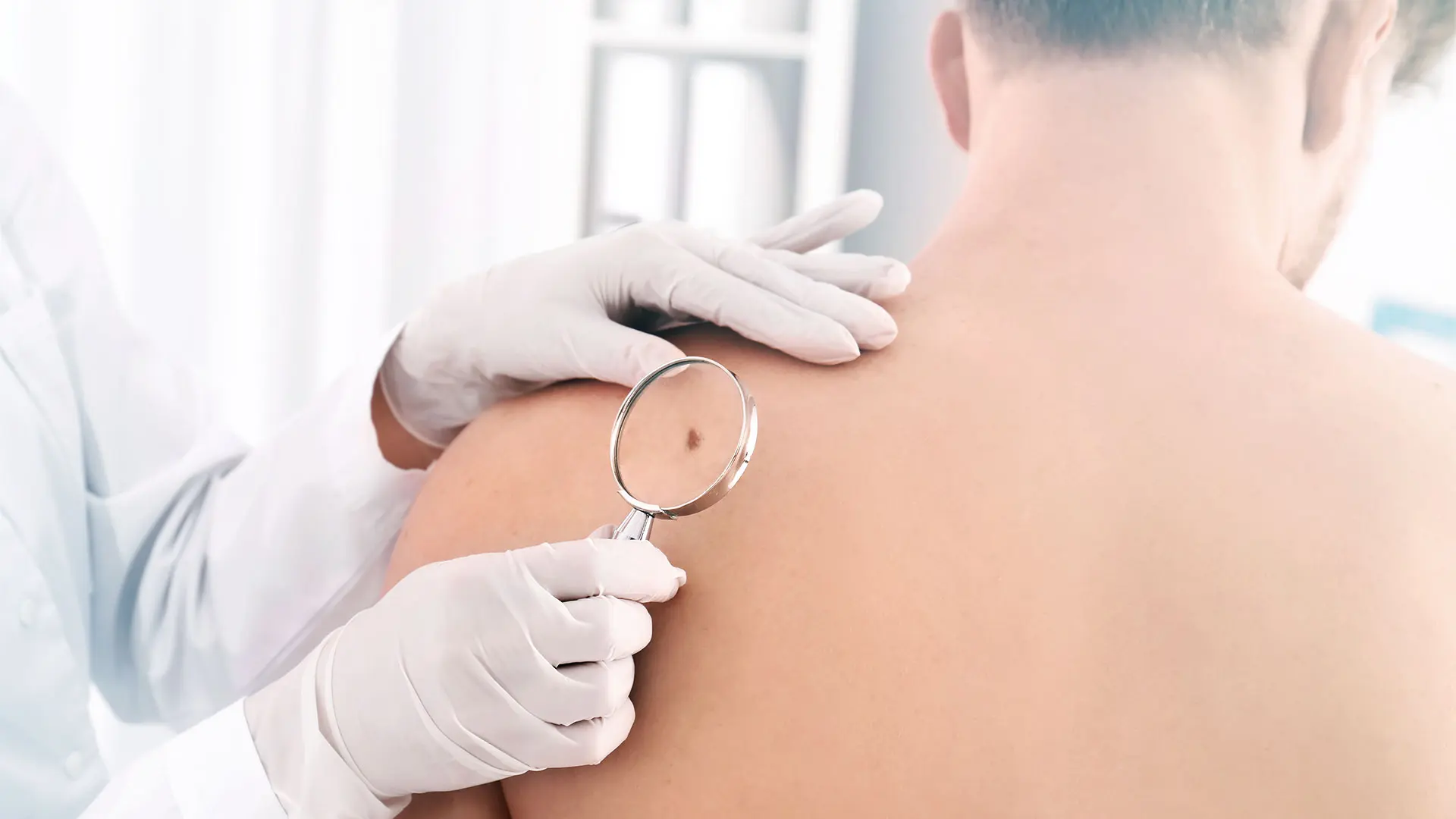Skin Cancer Screening & Treatments
SkinCare in Wellesley, MA
Skin cancer is among the most common types of cancer in the U.S., but most cases are very treatable and early detection is key. You should perform routine skin cancer screenings at home, especially if you have significant sun exposure, and schedule professional screenings whenever you notice something out of the ordinary. Dr. Goodkin is a Harvard Medical School-educated dermatologist with a high level of experience in skin cancer screenings, biopsy, and treatment for patients in the Boston area.
Quick Links
What is Skin Cancer Screening?
Skin cancer screening is an exam of the skin for signs of skin cancer. In particular, any moles, birthmarks, or other marks on the skin are evaluated for signs of basal cell, squamous cell, or melanoma skin cancer.
During a skin cancer screening appointment, Dr. Goodkin will ask you to undress and put on a gown. She will then conduct a visual exam from head to toe, checking for signs of skin cancer throughout the body, including the scalp. In some cases, Dr. Goodkin may also use tools such as a magnifying glass to closely examine marks or moles. If skin cancer is suspected, Dr. Goodkin will then order a biopsy test to make a diagnosis. Skin cancer screening appointments can generally be completed in about 15 minutes.
Skin Cancer Screening Results
If Dr. Goodkin suspects you may have skin cancer, she will order a biopsy test, in which a small sample of the skin is removed for further testing. In biopsy testing, this sample is examined under a microscope to reach a diagnosis. You will typically receive results in about 3-5 days following the biopsy.
Skin cancer screening checks for three major types of skin cancer:
- Basal cell carcinoma, which is the most common and highly treatable,
- Squamous cell carcinoma, which is also highly treatable, or
- Melanoma, which is the most dangerous but rarest type of skin cancer.
Who Should Have Skin Cancer Screening?
Some patients choose to have skin cancer screening as part of their routine checkups. However, this isn’t typically necessary unless you have certain risk factors. For example, patients with light skin tones, light colored eyes, blond or red hair, and who burn or freckle easily are at a higher risk for skin cancer. You should also have regular skin cancer screening if you have a history of sunburns, a family or personal history of skin cancer, frequent sun exposure throughout your life, or a large number of moles.
Finally, you should be screened for skin cancer if you notice signs of skin cancer at home. These can include:
- A changing or growing mole or spot
- Oozing, bleeding, or crusting on a mole or other mark
- Sores that do not heal within two weeks
- Shiny, pink, red, white, or translucent bumps
- Moles or sores with irregular or changing borders
When monitoring moles, look for the following:
- Asymmetry
- Irregular borders
- Uneven color
- Diameter larger than a pea or pencil eraser
- Changing size, shape, or color
If you notice any of the following signs, you should schedule a skin cancer screening with Dr. Goodkin as soon as possible.
Schedule an Appointment
To schedule a skin cancer screening appointment with Dr. Goodkin, call 781.227.7977 or request your appointment through our online form.
